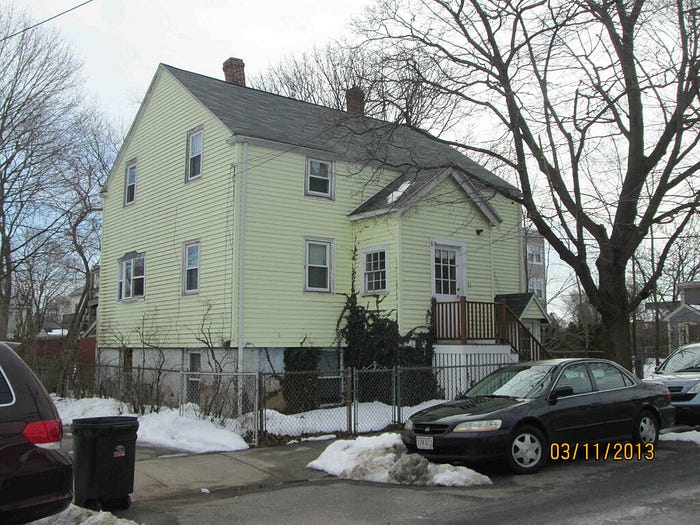It's time to end exclusionary zoning in Cambridge.
On about a third of the residential land in Cambridge, building new apartment buildings is prohibited outright by zoning. And even where they are legal in theory, dimensional standards and parking requirements have make it impossible in practice to build new triple-deckers, fourplexes, and townhouses like the ones that historically made Cambridge affordable to the middle class. When these rules were created in the 20th century, the locked in a racist, classist status quo. Today, these rules encourage wasteful land use, produce more expensive housing, and help keep the city economically and racially segregated.
We're trying to change that. The city is engaging in a process to adjust the zoning in its residential neighborhoods to allow for more multi-family housing, and we need your help to ensure this process ends with zoning that is as effective and fair as possible.
Sign up for action alerts through A Better Cambridge's mailing list - or get involved by joining as a member! You can also email [email protected] with any questions.
Current Status: The City Council held a Housing Committee hearing in September 2022, and directed CDD to come up with more concrete proposals by the next hearing. The next hearing has yet to be scheduled.
Updates
 |
|
 |
|
 |
|
 |
|
 |
|
Further Reading
 |
|
 |
|
|
|
 |
|
 |
|
 |
|
 |
|
 |
|
 |
|
Timeline / History
- In mid-2019, Cambridge's city-wide planning process, Envision Cambridge, produced its final report. Among its recommendations were to allow for "complementary infill development" in residential neighborhoods, "allow multifamily residential development citywide", and to "adjust zoning in residential districts to be more compatible with prevailing patterns of development, including building setbacks, maximum heights, open space, parking requirements, and uses".
- In December 2020, the City Council unanimously passed a policy order resolving that "single-family-only zoning is an unnecessary artifact of historically exclusionary housing practices, and two-family zoning can have similar effects", starting an official conversation on removing those zoning designations.
- In spring 2021, A Better Cambridge and Sunrise Boston filed and advocated for the Missing Middle Housing citizens' zoning petition, which would end exclusionary zoning by creating a uniform set of development standards for walkable residential neighborhoods. After many public hearings, op-eds, and community meetings, the petition expired in June without Council action.
- In January 2022, after a City Council order asking the Community Development Department to work with the Planning Board on creating "concepts and options" for allowing multi-family housing citywide, the Planning Board began having a series of discussions on the topic.
